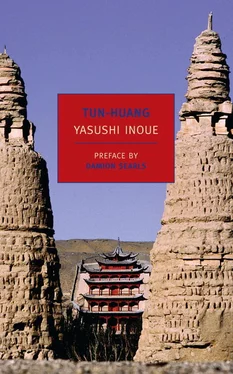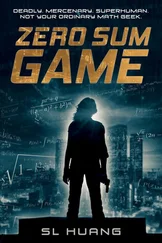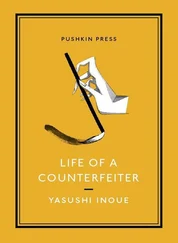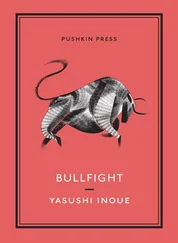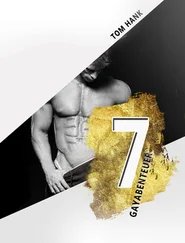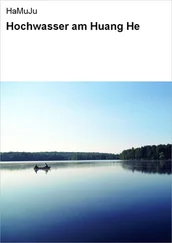Liang-chou was, therefore, a strategic point for China, for Hsi-hsia, and for the Uighurs. Both China and Hsi-hsia depended upon Liang-chou for the major supply of their horses, and the Uighurs made large profits from selling them.
If an all-out war between Hsi-hsia and China were to erupt, the starting point would be in Liang-chou. Everyone familiar with the frontier conditions agreed on that point. Hsing-te’s request to enter Liang-chou had been refused because it appeared that Hsi-hsia might begin a full-scale invasion of Liang-chou any time, and China had stepped up the activities of her troops.
It was not that Hsing-te was ignorant of these conditions; he simply did not think that war was imminent despite the increase in troop movements. In Liang-chou, a great number of the Hsi-hsia lived with the natives, the Chinese, and other tribes, and one could travel freely between Liang-chou and Hsing-ch’ing, the Hsi-hsia capital. Because he was Chinese, Hsing-te could not go directly to Hsing-ch’ing, but once he had entered Liang-chou he would be able to find a means of getting there.
One morning Hsing-te arose before dawn and led his horse from the stable to the back door. This horse, which he had purchased in Kan-chou, was his third since leaving K’aifeng. He began to load his personal effects onto the horse. Just then the manservant employed by the temple arrived to question Hsing-te about his activities. Hsing-te faced the man, who stood there like a shadow in the half light, and told him frankly that he wished to go to Liang-chou and was planning to slip out by mingling among the Uighur caravans. The servant was astonished, but stared steadily at Hsing-te’s slight figure.
“If you’re discovered, they’ll cut your head off,” he said.
“If I were afraid of losing my head, I couldn’t do anything,” Hsing-te replied. He expected some danger, but he was not afraid.
“Instead of worrying about me, won’t you help me load?” Hsing-te pointed to the bundles at his feet. To Hsing-te, who was not strong, the immediate problem was to load his goods onto the horse.
As the eastern horizon began to lighten, Hsing-te joined one of the Uighur caravans setting off for the walled city. This caravan had twenty camels and thirty horses. Hsing-te followed at the rear of the line. He didn’t have an official permit, but he was able to slip through the gate without any problem since he had arranged for the caravan chief to bribe the guard with a bolt of Hang-chou pongee cloth.
The caravan headed west across the plains. At first, the land was cultivated, and for a while budding trees could be seen all around, but as noon approached, they found themselves in a world of grayness. Nothing green could be seen anywhere. There was no wind, but the back of the caravan was hidden by clouds of dust. Toward evening the caravan reached the basin of the Yellow River. All during the second day they followed the river, at some distance from it. On the third day they reached the plateaus of the Ho-lan mountains. On the afternoon of the following day, the caravans finally descended from the plateaus and entered the rich plains. After leaving the plains on the fifth day they moved into the desert, the most difficult part of the journey.
For two days the caravans plodded through the desert. Then the desert gave way to greenery as they began to approach Liang-chou. On the final night, as the men encamped for the last time on the slope of a hill, they were rudely awakened by the distant sound of hordes of riders.
Hsing-te burst out of his tent and was met by a sight of hundreds, or thousands — he could not really tell — of cavalry forces passing by. The moon was not out, but there was a misty half light, in which the dark forms of men and horses galloping toward Liang-chou seemed like the flow of a great river. One after another these groups passed by.
“It’s a battle, a battle!” someone cried.
When they were sure that no more were coming, the Uighurs, who had been waiting with bated breaths, jumped into action. They folded up their tents immediately and rounded up their camels and horses. In the biting cold of the dawn air, the men frantically loaded their goods.
As the caravan was about to change its course northward, away from Liang-chou, the men again heard the reverberations of hoofbeats and the whinnying of military mounts. This time, too, the cavalry was some distance from the caravan. The problem was that the troops were going along the same northward course that the caravan was about to take. It was hard to know whether the battle was taking place in the north or in the south. And neither could one tell whether the cavalry that had first passed and the one which had just gone by were enemies or allies.
For a whole day the caravan kept changing course. When they went south, troops came from the south; when they turned north, military forces again appeared. The same situation faced them in the east and the west. They couldn’t distinguish which forces belonged to which country. Many other caravans were in a similar predicament. The tiny, distant outlines of these dotted the knolls and slopes of the hills.
After wasting the whole day going around in circles, the Uighur caravan stopped on the slope of a hill similar to the one they had camped on the previous night. The group discussed their situation and decided to continue toward their original destination — Liang-chou. Late in the night the long caravan of camels, horses, and men set off toward the west.
As before, the sound of troop movements, far and near, could be heard, but the men ignored it and pressed on. At the approach of dawn, the caravan was abruptly thrown into disorder. The horses reared, and the camels tried to run off. A hail of arrows fell around them.
In the midst of this unexpected confusion, the caravan chief ordered his men to leave the camels, horses, and goods, and to try to escape. The men scattered into the plains toward the west.
Hsing-te alone did not abandon his horse. He could not bear to desert the beast. Besides, it was loaded with all his daily necessities. Hsing-te started to run, leading the horse with its load. He was sorely tempted to ride, but he didn’t care to be a target for the arrows.
When the sun was high, he found himself on a sandy, white salt dune. The sand glistened blue or white in the sunlight. Hsing-te stopped his horse and had some breakfast. Just then, he saw a group of horses and camels approaching from the direction he had just come. At first he thought that a caravan was heading toward him, but somehow the movements of the group appeared to lack leadership and the group was disorganized.
As they came closer, Hsing-te jumped up in surprise. They were the same camels and horses that the Uighurs had left behind that morning in the middle of the plains. When these animals came up to Hsing-te, they stopped as though this was the most natural thing to do. One camel had an arrow stuck in its back.
When Hsing-te had rested, he started to walk with the abandoned animals; this time he was at the head of a long caravan. That afternoon he heard war cries in the distance. The battlefield seemed to be close by. The whole area was full of hillocks undulating like waves, and Hsing-te thought that he might be very close to Liang-chou, but he could not see anything resembling that city.
When he discovered a small spring surrounded by a few trees in a vale between the hills, he stopped the camels and horses and decided to camp there, although it was still early. He was completely exhausted. He slept on the grass with the strong sun beating upon him.
He could not tell how much time had passed. His sleep was broken by the plaintive cries of the camels and the whinnying of the horses. The surroundings were so brightly lit up that they seemed dreamlike. It was undoubtedly night, but the bodies of the camels and horses appeared to have caught fire as they stood against the red glare. The resonant, earth-shaking war cries seemed almost hushed in the startling clarity.
Читать дальше
